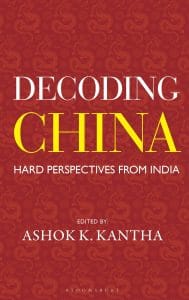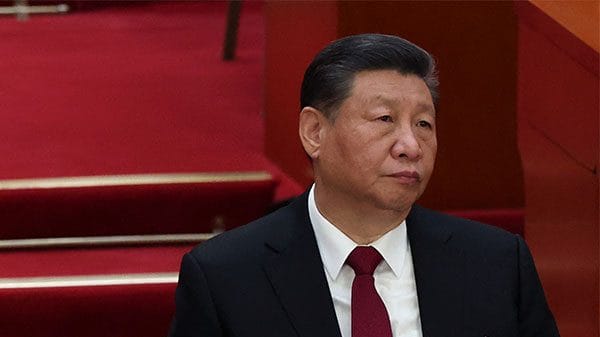Given its status as the second largest economy and trading nation, and its influence in the UN and other bodies, China is consolidating its position with its Global Development Initiative. In September 2021, Xi suggested that China prioritise development. The GDI, according to Xi, upholds the view that development is the master key to solving all problems. It is also said to have a people-centred approach, that is, the GDI puts people first and aims to promote their well-being and all-round development.
It is said to benefit all as it seeks to leave no country and no person behind in the pursuit of sustainable development. It is an innovation-driven initiative, recognising innovation as a key driver of sustainable development. It also promotes green development and sustainable lifestyles, and emphasises the importance of concrete actions and measurable results in achieving sustainable development goals. In pursuance of this, a ‘Group of Friends’ comprising about seventy countries was formed by China in the UN on 20 January 2022.
While the avowed focus of this is to further the UN’s Sustainable Development Goals, the actual focus turned out to be on China’s own development priorities. Besides, these goals were not well aligned with other global development initiatives, nor were any major funds allocated for this purpose. GDI provides China with an alternative economic framework in the longer term – compared to the Bretton Woods institutions – even though China is a beneficiary of the latter framework. In addition, China’s State-owned enterprises tend to garner contracts from other countries.
Global Security Initiative is another scheme of China’s grand strategy in the security domain. As has been the Chinese practice, many initiatives that the leadership began several years ago are amalgamated into new schemes. For instance, the principles of GSI include ‘common, comprehensive, cooperative and sustainable security’. Some of these were mentioned earlier in the ‘New Security concept’ in the early 21st century, when China cobbled up with Southeast Asian countries.
Other principles include respecting the sovereignty and territorial integrity of all countries, abiding by the purposes and principles of the UN Charter, taking the legitimate security concerns of all countries seriously, peacefully resolving differences and disputes between countries through dialogue and consultation and maintaining security in both traditional and non-traditional domains. China’s leaders mention these ad nauseam, even though in practice they are mainly rhetorical; for example, the case of the South China Sea Islands dispute, where repeated negotiations do not yield desired outcomes, and the India–China territorial dispute in Galwan, where, despite twenty Corps Commanders meetings, ‘disengagement and de-escalations’ were not ushered in, violating all agreements in this regard.
Implementing GSI will cover formulating a ‘new agenda for peace’; building a major-country relationship; preventing nuclear war and avoiding arms races; facilitating peace talks; implementing the five-point proposal on realising peace and stability in the Middle East; resolving conflicts in Africa and the Latin American Zone of Peace; taking up concerns of the Pacific Island countries; maritime dialogues and strengthening its role in the UN.
The preferred mechanisms for addressing these security issues are through multilateral processes involving the UN, Shanghai Cooperation Organisation (SCO), BRICS (comprising Brazil, Russia, India, China, South Africa, Iran, Egypt and Ethiopia), the Conference on Interaction and Confidence Building Measures in Asia (CICA), the ‘China + Central Asia’ mechanism, Meeting of Foreign Ministers of the Neighbouring Countries of Afghanistan, China-Horn of Africa Peace, Governance and Development Conference, China–Africa Peace and Security Forum, the Middle East Security Forum, the Beijing Xiangshan Forum, the Global Public Security Cooperation Forum and others.
Also read: The Tamil Nadu trio that took India from begging bowl to bread basket
China’s Global Civilisation Initiative aims to dominate the global cultural domain, which is currently dominated by the Western ethos. In the light of Samuel Huntington’s ‘clash of civilisations’ debate and the US Director of Policy Planning Kiron Skinner’s observations that Chinese are ‘not Caucasian’, China began preparing for conflict in the new domain of culture. Beijing advocated dialogue, or even an alliance of civilisations.
It organised mega conferences to allow for this by inviting mainly non-Western civilisational representatives. It advocated for respecting the diversity of civilisations; common values of humanity (to promote China’s own values and interests); emphasised the importance of inheritance and innovation of civilisations; argued for robustness in international people-to-people exchanges and cooperation and, in its current 14th Five Year Plan, proposed and implemented its objective of becoming a ‘Socialist Cultural Power’.
While the above concepts have been put across in an innocuous manner and many a time did not ruffle feathers of global and regional orders, a phenomenon under Xi that became controversial was ‘wolf warrior’ diplomacy [战狼外交], which drew inspiration from a film series by the same name. The first film in the series ended with the slogan ‘Whoever attacks China will be killed no matter how far away’ [犯我 中华者, 虽远必诛]. The sequel to this film ended with a message onscreen: ‘Citizens of the People’s Republic of China.
When you encounter danger in a foreign land, do not give up! Please remember, at your back stands a strong motherland.’ Clubbed with the revival of the ‘middle kingdom’ syndrome in China, with its ‘barbarian versus civilised’ discourse and rise of nationalism within the country, ‘wolf warrior’ diplomacy resulted in its ‘assertive’ approach to international relations in the last decade. Many foreign ministry officials were associated with this school of thought, including Zhao Lijian, Lu Shaoye, Liu Xiaoming, Wang Wenbin and Hua Chunying.
Zhao Lijian, for instance, criticised the US military for allegedly introducing bioweapons at Wuhan military sports events in October 2019. The foreign ministry was also critical of the US and Western sanctions on issues related to Xinjiang, Tibet, Taiwan, South China Sea and Huawei and ZTE as companies. Australia raising the issue of the COVID-19 virus originating in Wuhan at the World Health Assembly in May 2020 also raised hackles among China’s diplomats. In December 2020, Zhao Lijian tweeted a digitally altered image of an Australian soldier holding a bloodied knife to the throat of an Afghan child.
Then Australian prime minister Scott Morrison retorted, ‘The Chinese government should be totally ashamed of this post. It diminishes them in the world’s eyes.’ Further, in April 2020, China’s ambassador to France Lu Shaye criticised the West’s criticism of China’s handling of the COVID-19 outbreak. In March 2021, the Chinese embassy in Paris warned against French lawmakers meeting officials during an upcoming visit to Taiwan, and the embassy described Antoine Bondaz of the Foundation for Strategic Research as a ‘small-time thug’ and ‘mad hyena’.
Even though Xi Jinping observed at a study session on 31 May 2021 that diplomats should present an image of a ‘credible, lovable and respectable China to the world … [and that it] is necessary to make friends, unite and win over the majority, and constantly expand the circle of friends [when it comes to] international public opinion’, ‘wolf warrior’ diplomacy had cost China much of its soft power across the world.
For instance, an internal report by the China Institute of Contemporary International Relations, a think tank affiliated with the Ministry of State Security, reportedly warned of anti-China sentiment rising due to the coronavirus outbreak. A Pew survey conducted from June 2020 to August 2020 found that unfavourable views of China had reached historic highs in 2020. Also, the Portland Soft Power Index placed China at twenty-seven out of thirty countries in its global rankings.
 This excerpt by Srikanth Kondapalli in ‘Decoding China: Hard Perspectives from India’, edited by Ashok K Kantha, has been published with permission from Bloomsbury India.
This excerpt by Srikanth Kondapalli in ‘Decoding China: Hard Perspectives from India’, edited by Ashok K Kantha, has been published with permission from Bloomsbury India.






